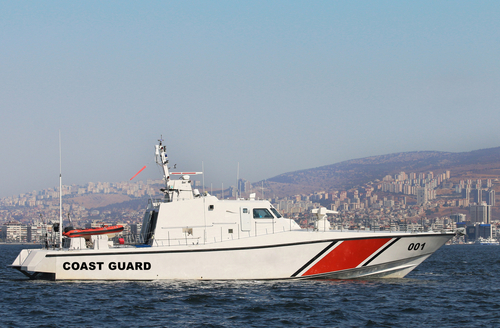
After being worked into the FY 2023 National Defense Authorization Act (NDAA), the Coast Guard Authorization Act of 2022, the U.S. Maritime Administration (MARAD) Reauthorization Act, and several oceans provisions are slated to be signed into law by President Joe Biden.
As part of the larger legislative package, the provisions passed their final Congressional hurdle last week with a final vote from the Senate. As a result, $18.9 billion could be authorized for the Coast Guard during fiscal year 2023, along with $1.6 billion for MARAD to invest in the maritime workforce, infrastructure, and expansion of research and development of new technologies to advance fleet sustainability and innovation.
“From expanding our presence in the Arctic to replacing new heavy surf boats in Southwest Washington that will help our Coast Guard save lives — the crucial investments included in this law will keep our ports and waterways secure while ensuring that the maritime economy in Washington state continues to thrive,” U.S. Sen. Maria Cantwell, chair of the Committee on Commerce, Science and Transportation, and one of the bill’s authors, said. “The new law will also help protect our irreplaceable marine habitat in the Pacific Northwest, establishing a new Puget Sound Office that will bring together EPA, NOAA, and other scientists to restore Puget Sound. It will also establish new efforts to protect orcas and other marine life from vessel-related impacts such as noise pollution, oil spills, and ship strikes.”
As Cantwell implied, the funding would do a lot of heavy lifting for the U.S. maritime efforts. It would authorize money for ships, aircraft, health care, and other benefits to support Coast Guard members, including a 4.6 percent pay raise for service members. Other provisions require new crackdowns on illegal fishing and forced labor; improved oversight, investigations, and punishment of sexual harassment and assault at sea; creation of a 10-year strategy to enhance diversity in recruitment for the Coast Guard; improved oil spill response; and a $1 billion allotment for infrastructure repair and replacement backlogs, among other items.
Many contributed to the various provisions of the final legislation, but the original efforts were prodded along by Cantwell and Commerce Committee Ranking Member Roger Wicker (R-MS). On the MARAD side, their funding acquisitions would go to various programs, from infrastructure development to environmental and technical assistance, security, and both the U.S. Merchant Marine Academy and state maritime academies. It would require a new National Maritime Strategy to help grow the sea-based economy and push for new technological developments and environmental studies.
Further amendments in this vein will authorize $429 million annually through 2027 for National Oceanic and Atmospheric Administration (NOAA) programs to keep shipping routes safe, conserve fishery resources and adapt to the effects of climate change on the oceans, among others.




